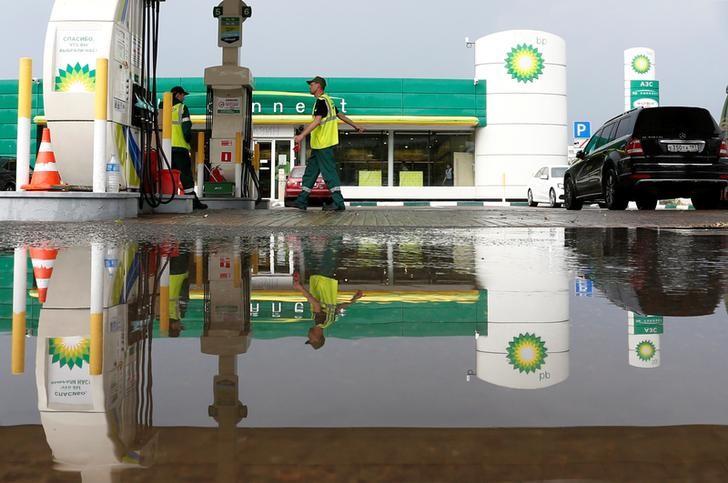Adaptimmune stock plunges after announcing Nasdaq delisting plans
Investing.com -- BP (NYSE:BP) (LON:BP) on Tuesday reported second-quarter profit that beat analyst expectations, rebounding amid recent volatility in global oil and gas markets.
The company’s underlying replacement cost (RC) profit for the period rose to $2.4 billion from $1.4 billion in Q1, supported by improved performance across its segments.
The figure marked a decline from the $2.76 billion reported in the year-ago quarter, though it still topped analyst estimates of $1.81 billion, according to an LSEG-compiled consensus.
Operating cash flow came in at $6.3 billion, up from $2.8 billion in the prior quarter, despite including a $1.1 billion Gulf of Mexico settlement payment.
The oil production and operations unit generated $2.3 billion in underlying RC profit, although this was below last year’s levels due to weaker realized prices and higher depreciation.
Production rose 2.5% year-over-year to 1.52 million barrels of oil equivalent per day. Realized liquids prices declined to $59.74/bbl from $73.05 a year ago.
Gas & low carbon energy delivered $1.5 billion in underlying RC profit, broadly flat year-on-year, with lower production offset by higher margins. Reported production in the segment was down 13% due to divestments in Egypt and Trinidad.
The customers & products segment saw underlying RC profit improve to $1.5 billion from $1.1 billion a year ago, as stronger trading and midstream performance offset a weaker refining margin environment. BP-operated refining availability remained high at 96.4%.
“We are delivering our plan with operational reliability above 96%," said CEO Murray Auchincloss in the release. "We remain fully focused on delivering safely and reliably, maintaining capital discipline and driving performance improvement.”
He also noted that the company is conducting a strategic review of its business portfolio “to ensure we are maximizing shareholder value.”
BP’s capital expenditure for the quarter stood at $3.4 billion. Net debt fell to $26.0 billion from $27.0 billion in Q1, helped by divestment proceeds of $1.4 billion.
The company also raised its dividend by 4% to 8.32 cents per share and announced a new $750 million share buyback program.
